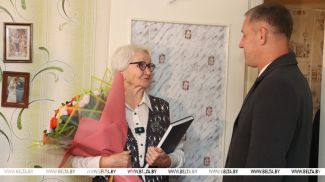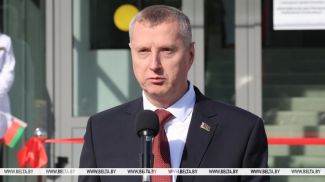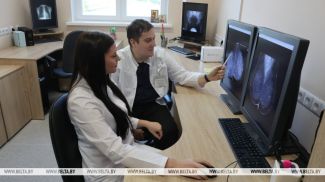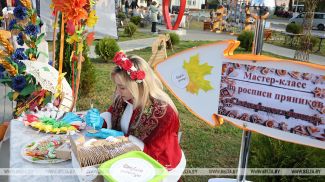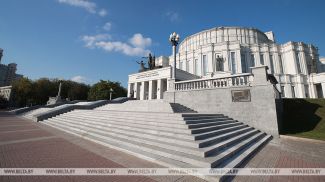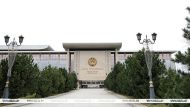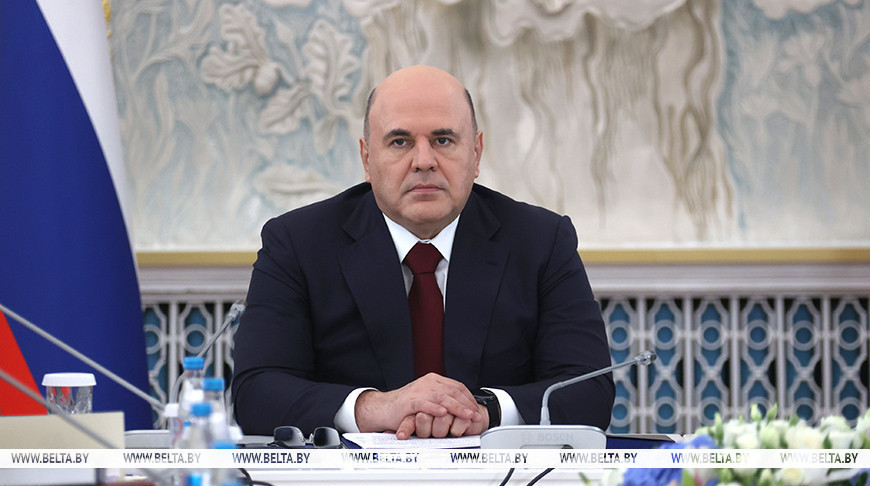
MINSK, 5 November (BelTA) - Russian Prime Minister Mikhail Mishustin named the main areas of integration of Belarus and Russia, including the creation of a common economic and information space, as he spoke at the meeting of the Union State Council of Ministers in Minsk on 5 November, BelTA has learned.
“Our meeting is taking place ahead of the Union State Supreme State Council meeting which will be hosted by the heads of state – Aleksandr Lukashenko and Vladimir Putin. The meeting will also take place in Minsk and will be timed to mark the 25th anniversary of the Union State Treaty. Our governments are working hard to implement the Union State Treaty. We have laid a solid foundation for a coordinated macroeconomic, industrial and agricultural policy. We have launched work on forming common rules of competition, transportation market. This is all necessary for the development of a common economic space. At the meeting of the Supreme State Council in St. Petersburg in winter the heads of state set new benchmarks. This year and in the next two years it is important to focus on deepening integration in industry, agriculture, energy, logistics, tax and customs, science, education, culture and other areas. A total of 31 action plans have been approved to achieve joint goals. They contain more than 300 tasks. About one sixth of them have already been implemented. I believe that a good pace has been gained and it is necessary to develop it further,” Mikhail Mishustin said.
In his words, the benefits of integration are tangible. “It is seen, among other things, in the figures of trade and economic cooperation. Mutual trade have noticeably increased in January-August 2024. We are also strengthening the technological sovereignty of the Union State. Together we are modernizing and increasing capacities in machine-tool construction, microelectronics, developing the production of equipment and components to replace imported supplies. I would like to thank you personally, Mr. [Belarusian Prime Minister Roman] Golovchenko, for your position. You deal with issues related to industrial cooperation, including those of the Union State and the EAEU in general. You also often visit our enterprises, machine-building plants. You are well-known in Russia,” the Russian prime minister said.
Belarusian enterprises are actively involved in large-scale Russian production projects in aircraft and shipbuilding. Cooperation in science-intensive industries, peaceful atom, and space research continues. Mutual recognition of components, parts and end products made in Russia and Belarus gives a serious impetus to further cooperation.
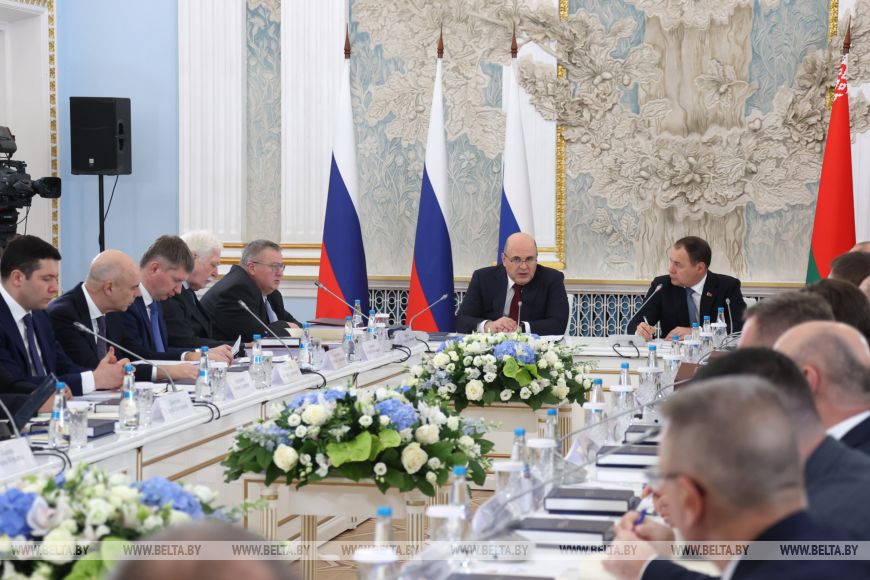
“Another significant task in the context of achieving independence from foreign decisions is, of course, the training of qualified personnel for national economies. The setting up of a network university of high technologies of the Union State will make it possible to strengthen the training of the most in-demand specialists. The work on a common information space should also get more attention. By the decision of our presidents, we are setting up a media holding company of the Union State. It will unite the efforts of our mass media and provide interesting and useful content for the citizens of Russia and Belarus,” Mikhail Mishustin said.
“Our meeting is taking place ahead of the Union State Supreme State Council meeting which will be hosted by the heads of state – Aleksandr Lukashenko and Vladimir Putin. The meeting will also take place in Minsk and will be timed to mark the 25th anniversary of the Union State Treaty. Our governments are working hard to implement the Union State Treaty. We have laid a solid foundation for a coordinated macroeconomic, industrial and agricultural policy. We have launched work on forming common rules of competition, transportation market. This is all necessary for the development of a common economic space. At the meeting of the Supreme State Council in St. Petersburg in winter the heads of state set new benchmarks. This year and in the next two years it is important to focus on deepening integration in industry, agriculture, energy, logistics, tax and customs, science, education, culture and other areas. A total of 31 action plans have been approved to achieve joint goals. They contain more than 300 tasks. About one sixth of them have already been implemented. I believe that a good pace has been gained and it is necessary to develop it further,” Mikhail Mishustin said.
In his words, the benefits of integration are tangible. “It is seen, among other things, in the figures of trade and economic cooperation. Mutual trade have noticeably increased in January-August 2024. We are also strengthening the technological sovereignty of the Union State. Together we are modernizing and increasing capacities in machine-tool construction, microelectronics, developing the production of equipment and components to replace imported supplies. I would like to thank you personally, Mr. [Belarusian Prime Minister Roman] Golovchenko, for your position. You deal with issues related to industrial cooperation, including those of the Union State and the EAEU in general. You also often visit our enterprises, machine-building plants. You are well-known in Russia,” the Russian prime minister said.
Belarusian enterprises are actively involved in large-scale Russian production projects in aircraft and shipbuilding. Cooperation in science-intensive industries, peaceful atom, and space research continues. Mutual recognition of components, parts and end products made in Russia and Belarus gives a serious impetus to further cooperation.

“Another significant task in the context of achieving independence from foreign decisions is, of course, the training of qualified personnel for national economies. The setting up of a network university of high technologies of the Union State will make it possible to strengthen the training of the most in-demand specialists. The work on a common information space should also get more attention. By the decision of our presidents, we are setting up a media holding company of the Union State. It will unite the efforts of our mass media and provide interesting and useful content for the citizens of Russia and Belarus,” Mikhail Mishustin said.




